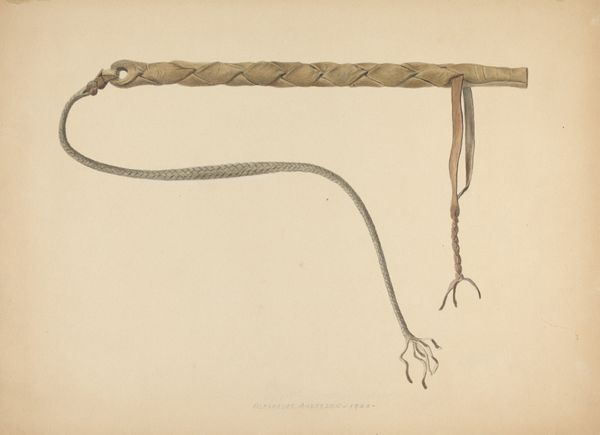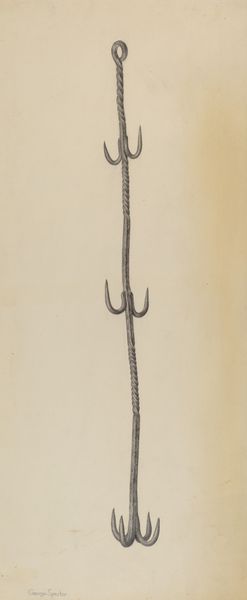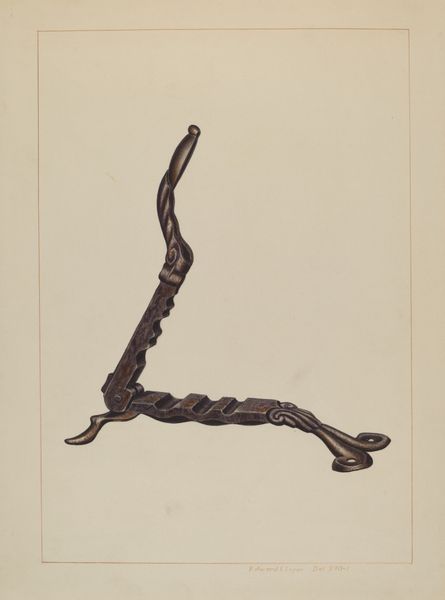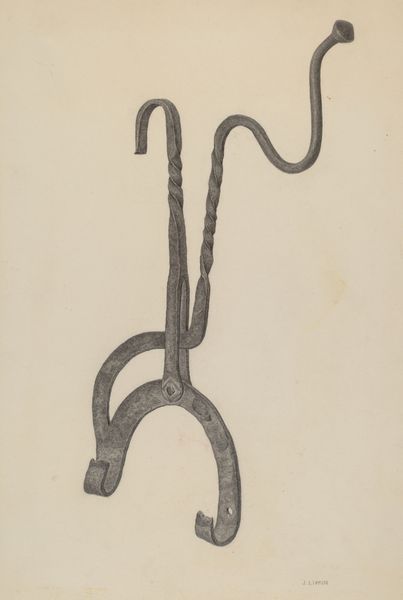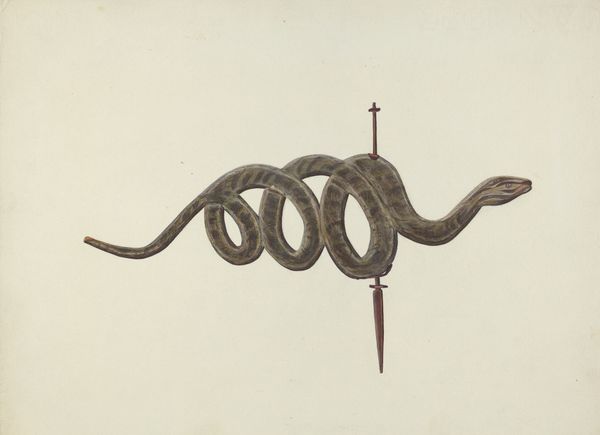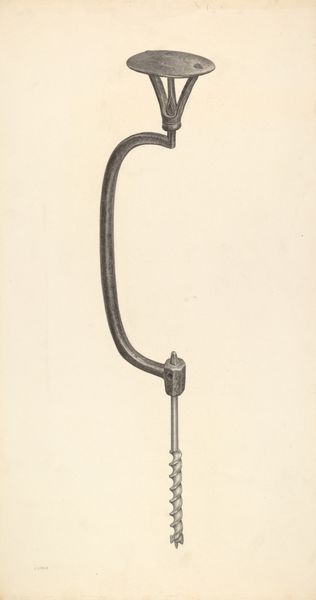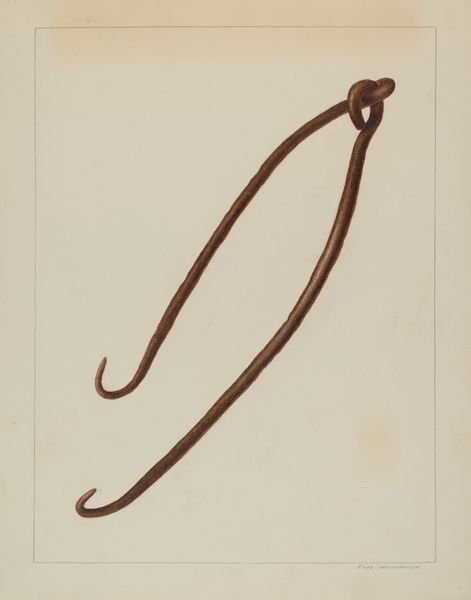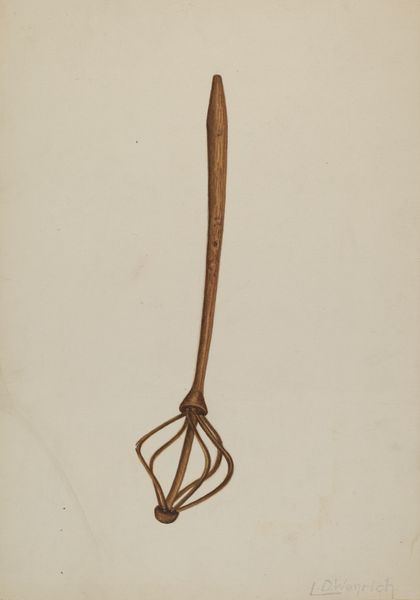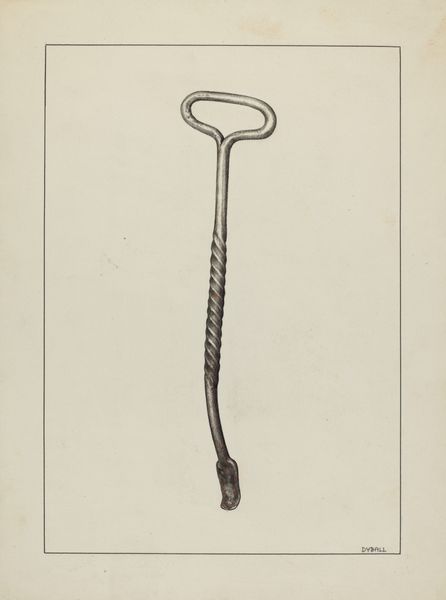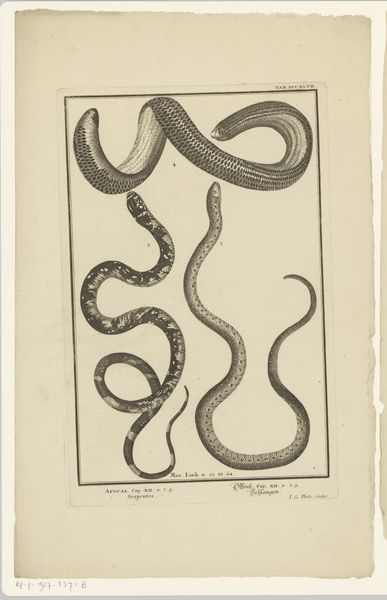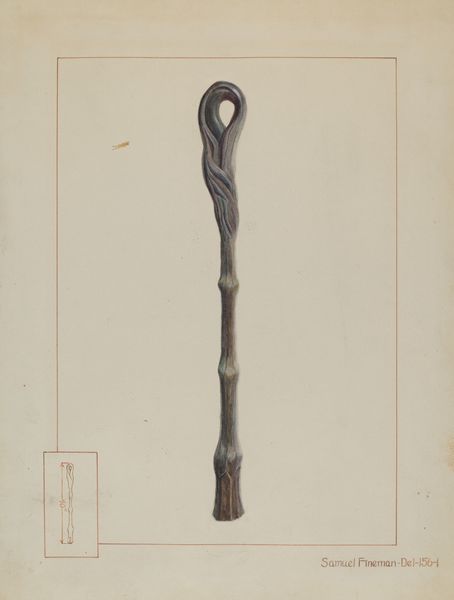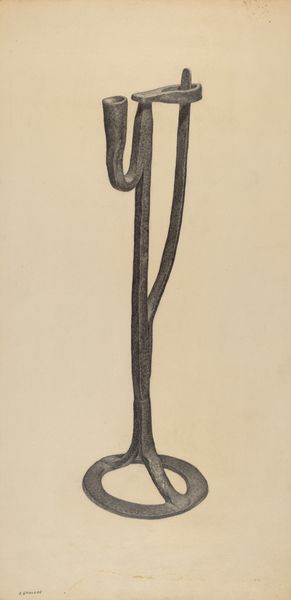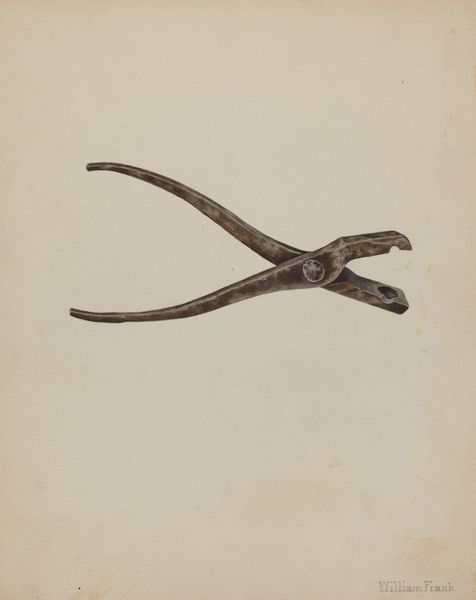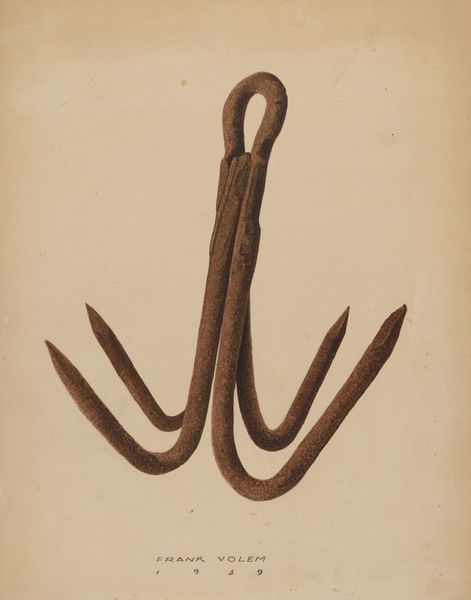
drawing, pencil
#
pencil drawn
#
drawing
#
pencil
Dimensions: overall: 30.1 x 22.8 cm (11 7/8 x 9 in.) Original IAD Object: 81" long
Copyright: National Gallery of Art: CC0 1.0
Curator: Well, here we have "Bull Whip," a pencil drawing from around 1937 by Clyde L. Cheney. Quite a direct presentation, wouldn't you say? Editor: Striking! And frankly, a little unsettling. It feels almost like an abandoned pet snake rendered in charcoal. There's something about the stillness of it, frozen in mid-air… a charged, silent moment. Curator: I find the scale rather intriguing. Cheney includes a small inscription noting “Scale 1”=3”. Almost like a blueprint, or a scientific record more than a traditional artwork. It makes you consider the purpose—was it for documentation? Design? Editor: Fascinating! Thinking of it as documentation shifts my perception entirely. I'm now focused on the actual construction, all those meticulously braided layers. You see the human labor embedded in each twist. Leatherwork is so interesting—it can be functional and beautiful, almost blurring lines between utility and craft. Curator: Precisely! The very choice of material and subject are intriguing in themselves. What does the whip signify, beyond its utilitarian function? There is an underlying tone to it. It makes me reflect on power and control, perhaps discomfort. Editor: Oh, certainly. Its purpose wasn’t for friendly purposes! There’s a stark tension between the detailed rendering and the implied violence the object represents. Makes me wonder who handled this object, who was impacted, and how Cheney wrestled with these histories as the maker. Curator: So true. And it also demonstrates the potential beauty in rendering objects, regardless of context, which has an amazing visual impact despite its original context. This seemingly straightforward piece pulls us in to consider layered narratives. Editor: Absolutely. It’s far more evocative than its simple medium suggests, wouldn't you agree? Curator: It seems an innocent drawing at first. It sneaks up on you! Thank you, Clyde L. Cheney, for creating a portal, and encouraging reflection on labor, usage, and potential discomfort in a simple object.
Comments
No comments
Be the first to comment and join the conversation on the ultimate creative platform.
